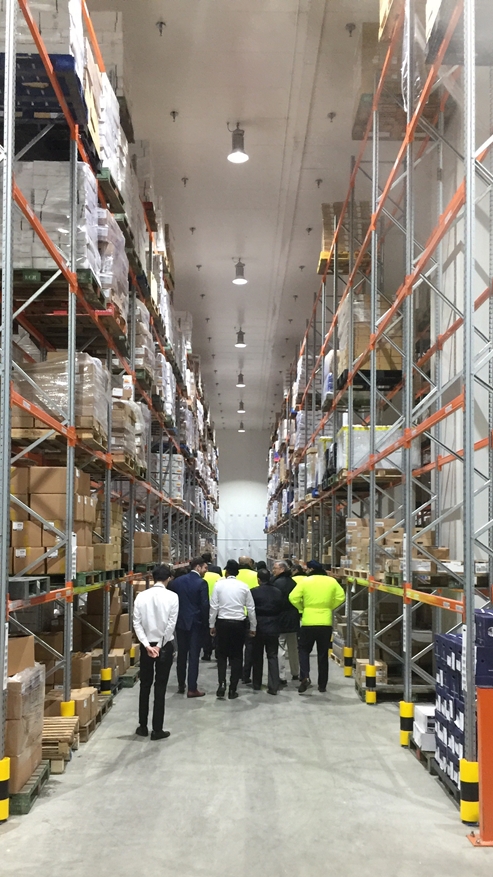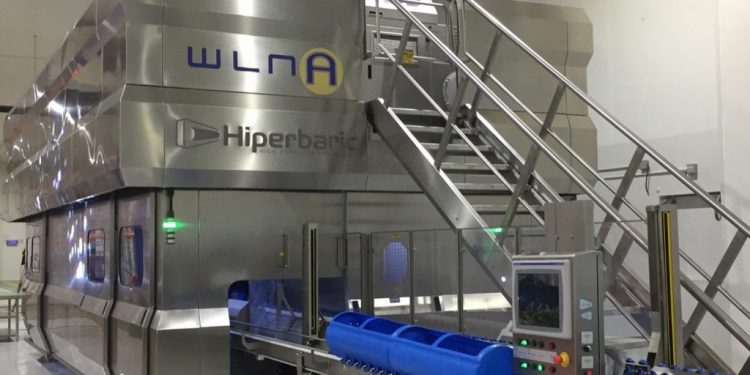With the support of Enterprise Singapore and Singapore Polytechnic’s Food Innovation Resource Centre (FIRC), Warehouse Logistics Net Asia (WLNA) has just set up a High Pressure Processing (HPP) Resource Sharing Facility for local food manufacturers. Launched on 16 April 2018, it has the industry abuzz with questions.
Let us break it down for you.
What can HPP do for you?
Using HPP technology, the equipment applies high pressure to the products instead of heat or chemicals to remove bacteria. This pasteurisation technique has several benefits:
- Extends shelf life of chilled products by two to four times;
- Retains sensorial and nutritional properties of food products;
- Removes the need for preservatives;
- Enables the shucking of mollusks and extraction of crustacean meat without boiling, thereby increasing yield and productivity.
What’s the cost like?
The good news is, WLNA is inviting food players to use the HPP equipment on a pay-per-use basis, so you do not have to invest $2 million to try it out.
You can expect $130 to $190 per processing cycle. In a 15-minute cycle, the equipment can process up to 300 litres worth of food or beverage.
According to WLNA Chief Operating Officer Karthegesan Bala, the benefits far outweigh the cost. With longer shelf life, there’s lesser wastage from expired goods.
He added: “You will save on administrative costs because you don’t have to make multiple orders. Since you are ordering in bigger volumes, you can negotiate better with your suppliers as well.”
Most importantly, is it worth it?
Since the facility’s pilot in February 2018, some 60 companies have conducted trials and more than 20 of them have indicated interest to carry out their commercial production there.
Local processed meat manufacturer Golden Bridge Foods is one of the five companies that have started doing so.
Managing Director Ong Bee Chip reported a 50 per cent savings in manpower as his merchandisers can shelf products in larger quantities at the retail stores, reducing the number of trips needed for restock.
With shelf lives increased from 30 days to four months on average, he will also be leveraging the technology to export goods to the region.
Is this the first time HPP has been used?
Actually, no. The Soup Spoon opened its own HPP facility back in June 2017. However, WLNA’s HPP facility is the very first one made for industry sharing.
As a cold chain specialist, WLNA is able to provide end-to-end solutions for food retailers, manufacturers, distributors and wholesalers.

They also extend complementary services to HPP users at an additional charge.
For instance, WLNA is certified by the Agri-Food & Veterinary Authority of Singapore to conduct lab testing on products for pathogen (bacteria, basically) count before and after HPP.
With temperature-controlled trucks and warehouses chilled up to minus 26 degrees, you can engage them to pick up and store your goods without worrying that food safety levels will be compromised.
Are your products eligible, and how do you start?
HPP technology can be applied to a wide range of food products ranging from fresh produce and ready-to-eat meals to juices, soups and sauces.
It can even be applied on Halal-certified products. To ensure strict segregation of various products, WLNA’s sharing facilities work on the system of pre-booked timeslots, where the water in the equipment is replaced in-between sessions.
The only caveat is that products have to be sealed in flexible and water-resistant packaging. This is where Singapore Polytechnic FIRC’s advisory services come in handy to help you integrate HPP into your current processes.
And should any feasibility studies be required, Enterprise Singapore will support you via the Capability Development Grant, which helps local small- and medium-sized enterprises scale up their business for sustainable growth.
Interested? Contact WLNA’s Cham Kar Wah at chamkw@wlna.com.sg or FIRC’s Joel Chan at joel_chan@sp.edu.sg. WLNA will be rolling out a e-portal next month for you to make bookings and evaluate cost-benefits seamlessly.
Still unsure if this is for you? Then keep a lookout for the two-day HPP masterclasses in the second half of 2018, where you can learn more about the application of HPP technology and successful case studies from industry experts.
What’s Next?
WLNA’s HPP Resource Sharing Facility is the first in the pipeline of shared facilities that will be rolled out for the food manufacturing industry over the next three years.
This is in line with the strategies laid out by the Food Manufacturing Industry Transformation Map to foster closer industry partnerships, and help companies overcome common hurdles such as cost and the lack of expertise when deploying new technologies.

